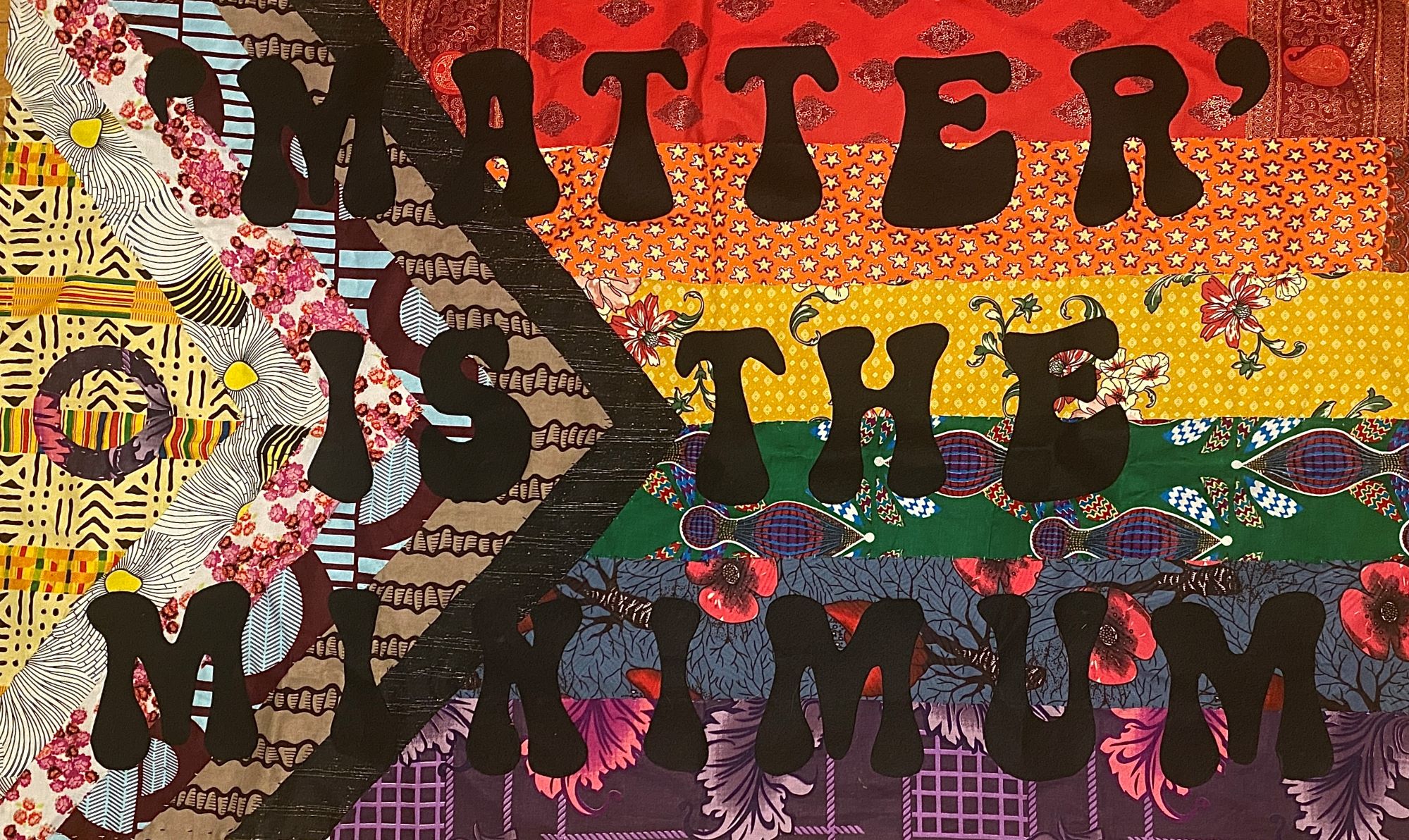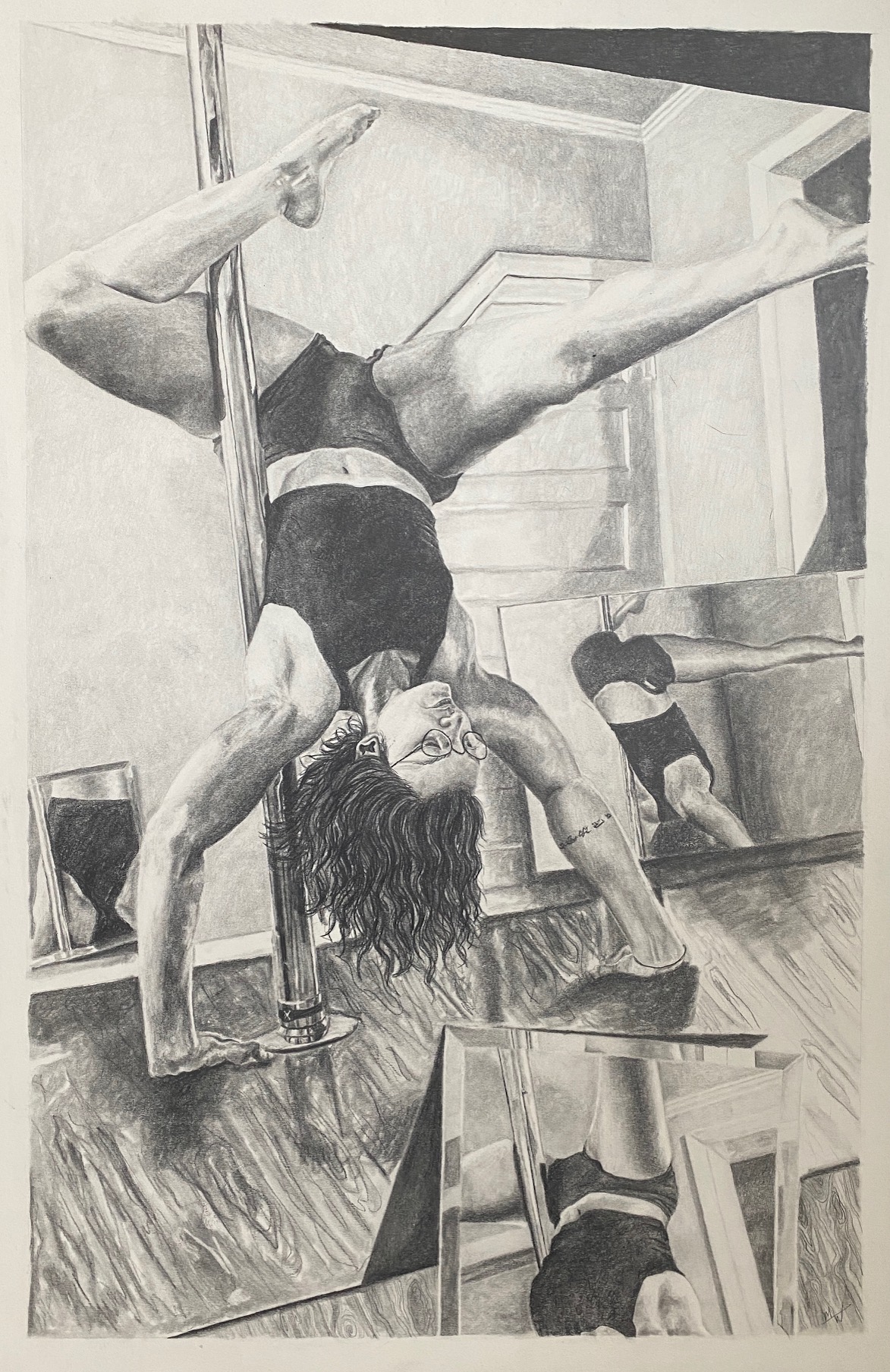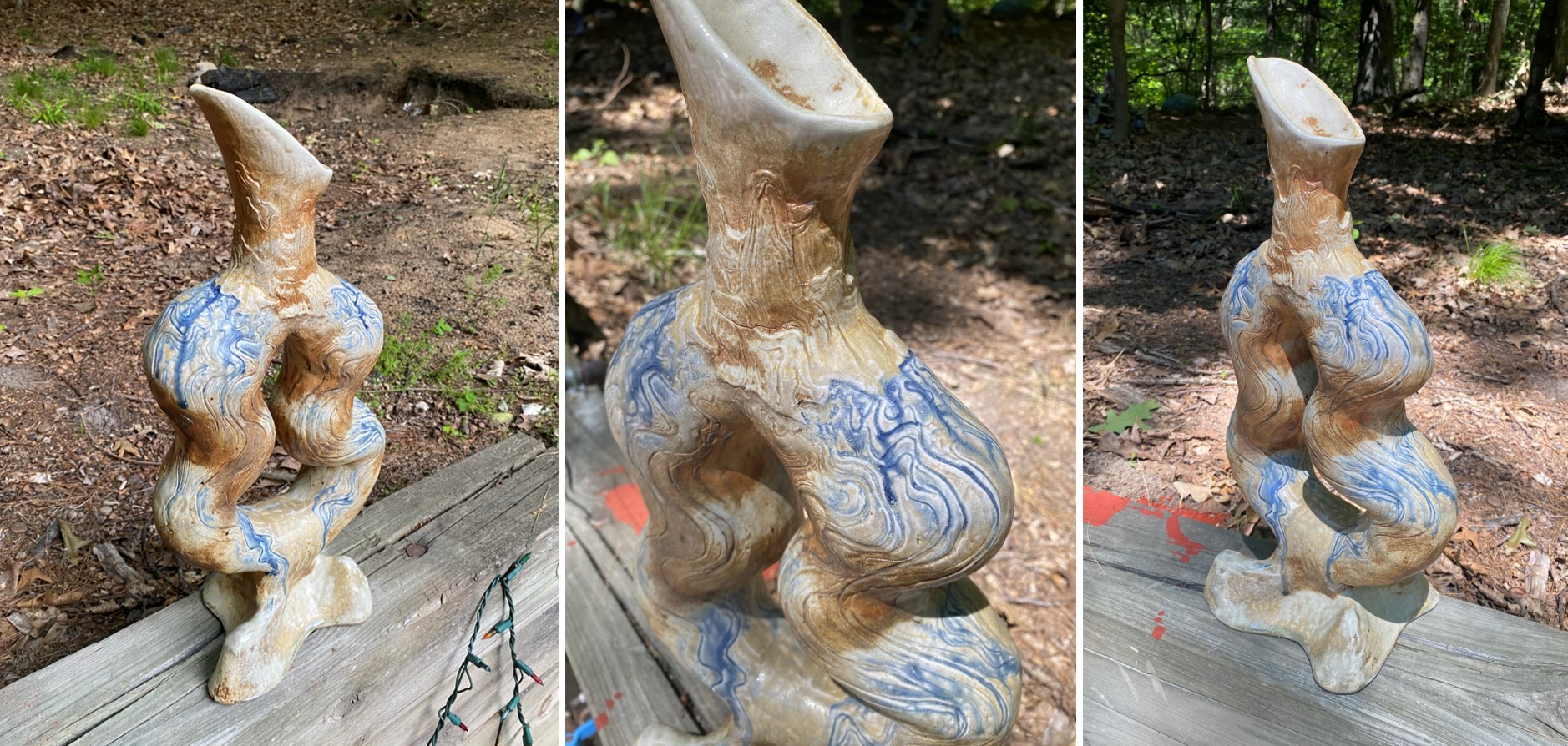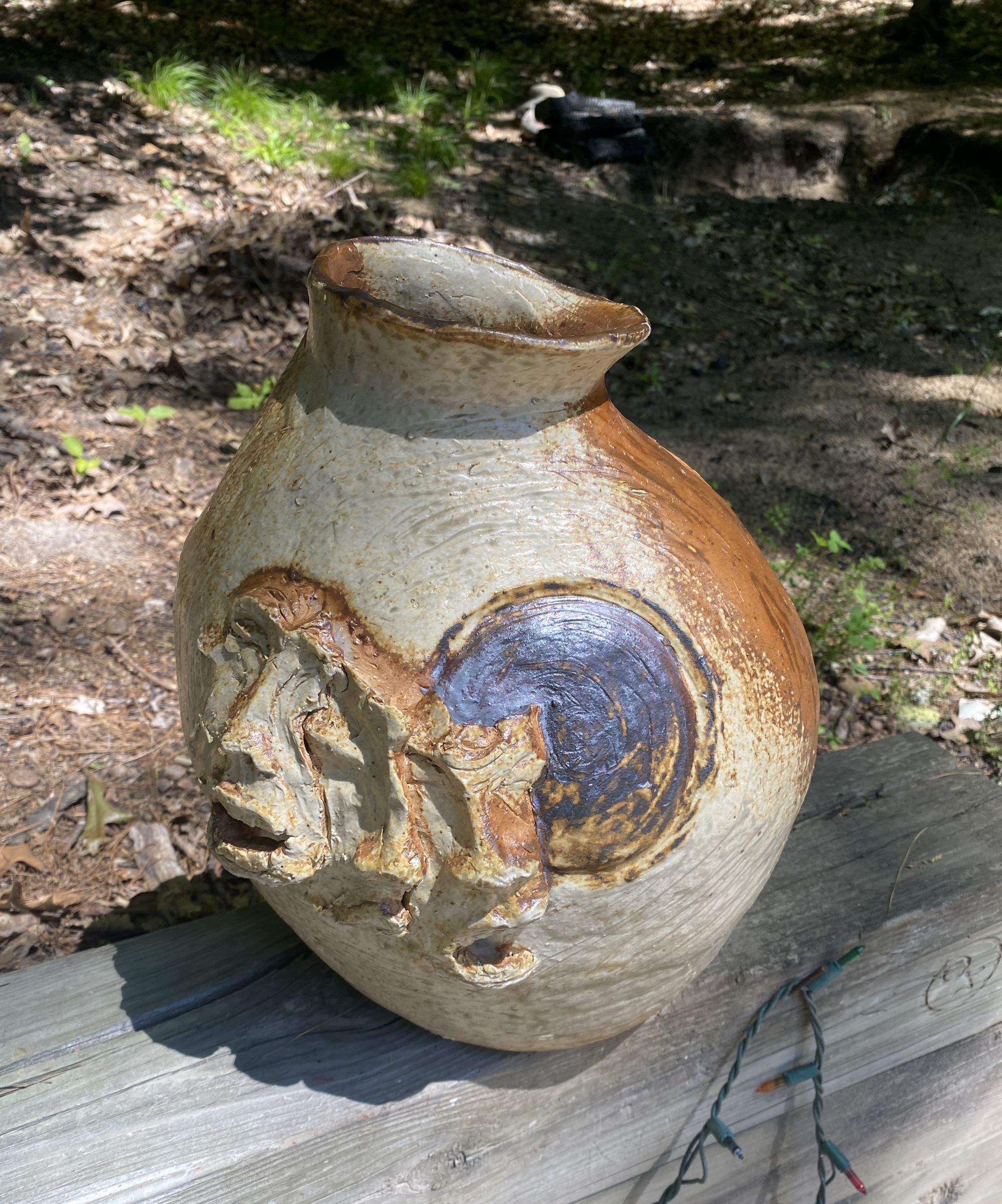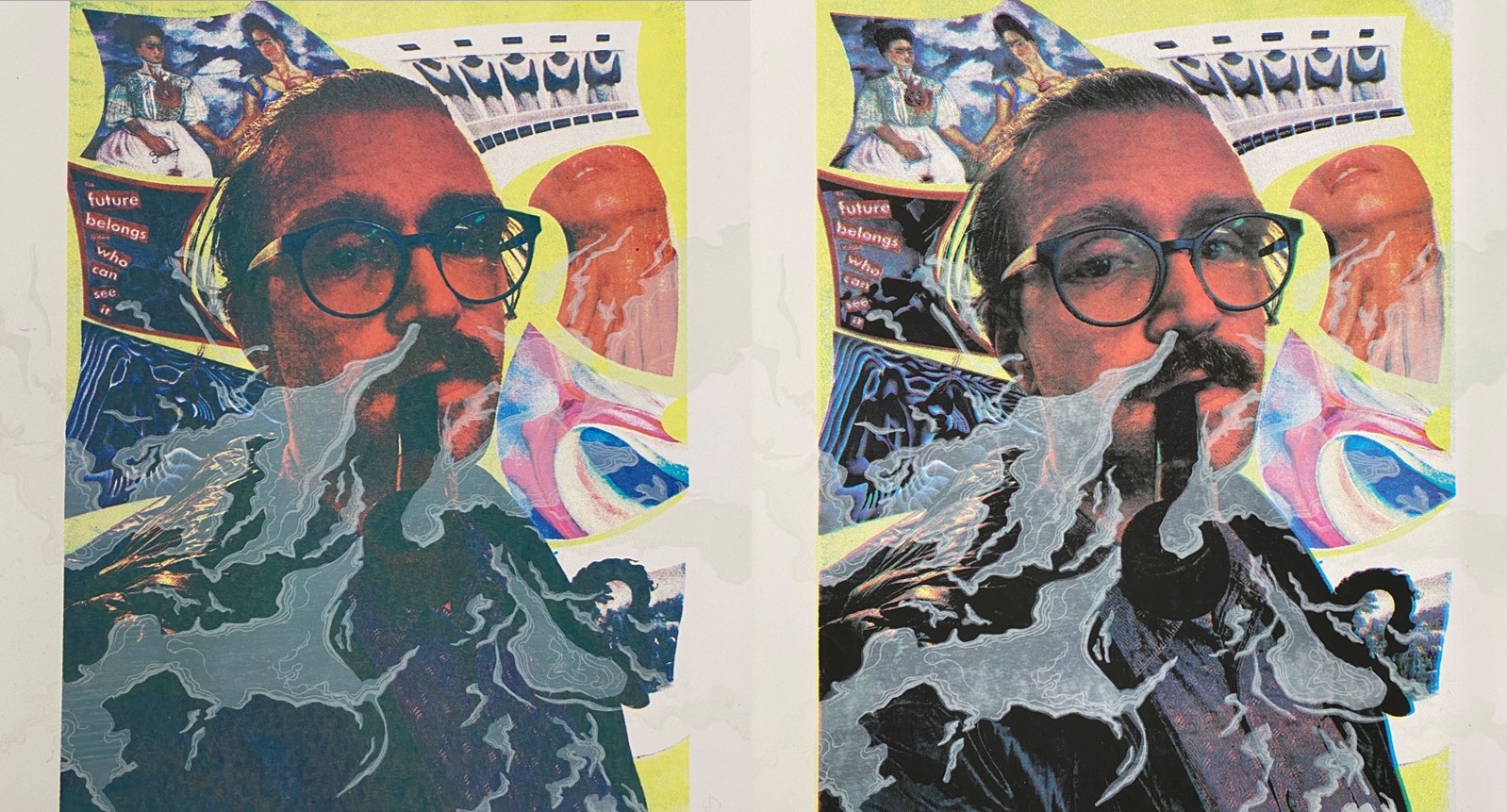I am mixed Pakistani/White. I am queer. I am nonbinary. I am a creator. I am a survivor. I am disabled. These are not entities able to be compartmentalized, but interconnected ways of being that create a sense of self unique to me.
My artwork is irrevocable from the identities I hold, which simultaneously fuse with, reflect, mold, constrict, and expand one another. Imagination and intuition are at the heart of my creative practice, involving a process-oriented approach to collaborating with art material(s) as a means of re-imagining, expanding, experimenting, mending, and embodying. I perceive art mediums as pathways to explore the bounds of my subjectivity and human nature’s fragility and resilience. Recently leaning into more interdisciplinary practices, I work across the realms of painting, printmaking, ceramics, fiber arts, drawing, performance, dance, and sculpture. Each process represents a unique method of questioning our positionality and critically investigating the care we can offer ourselves and our communities. My art therapist identity expands my conceptualization of creating, centering it as a strategy to decolonize the political body and bounds of healing.
My most recent project for the 2025 Art Therapy Exhibition, a collaborative textile sculpture and dance performance piece entitled We the Helpers, is a highly experimental work that challenges the notion of a ‘helper’ and who fits its definition. Traditionally, those who work within the ‘helping professions’ are therapists, social workers, health care workers, teachers, and even law enforcement officials. As helping professionals, we are mandated to help in state-mandated ways that dictate what shapes healing is allowed to take. Yet these same systems are placing our minds, bodies, and spirits into complex and prolonged states of chaos. Together as art therapists, instructors, sex workers, artists, students, performers, workers, activists, and researchers, I collaborate with two others to explore the tactile metaphors of weaving and mending, intertwining our intuition to imagine new ways of being with ourselves and one another. It is our responsibility to imagine new ways of being and connecting to our shared humanity when our systems inevitably fail us. Best practices are born out of generalization and professionalization, but sources of care must flow from our existing strengths, resiliencies, and sources of power. This piece explores the sources we can draw from to create our own best practices, informed by the ways our experiences and resources allow us to care for one another in radical ways. We can all be the helpers.
We are not free until we are all free. Free Palestine. Free Congo. Free Sudan. Free Lebanon.
Julia Gardziel (she/her)
Instagram: @shark_therapist_
Email: juliagardziel.movement@gmail.com
Birdee (she/her)
Instagram: @bootscootinbirdee
Email: birdee.pd@gmail.com
